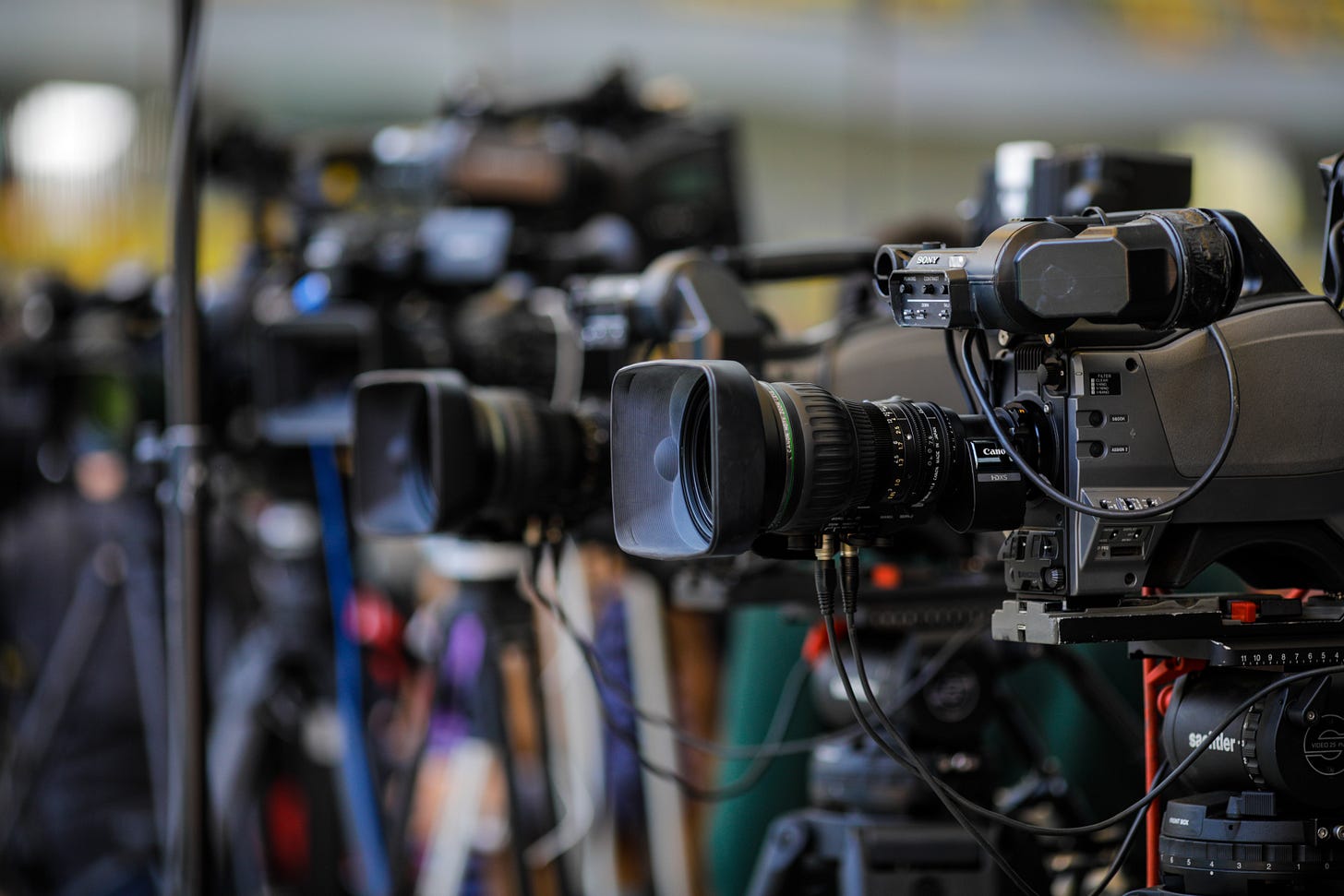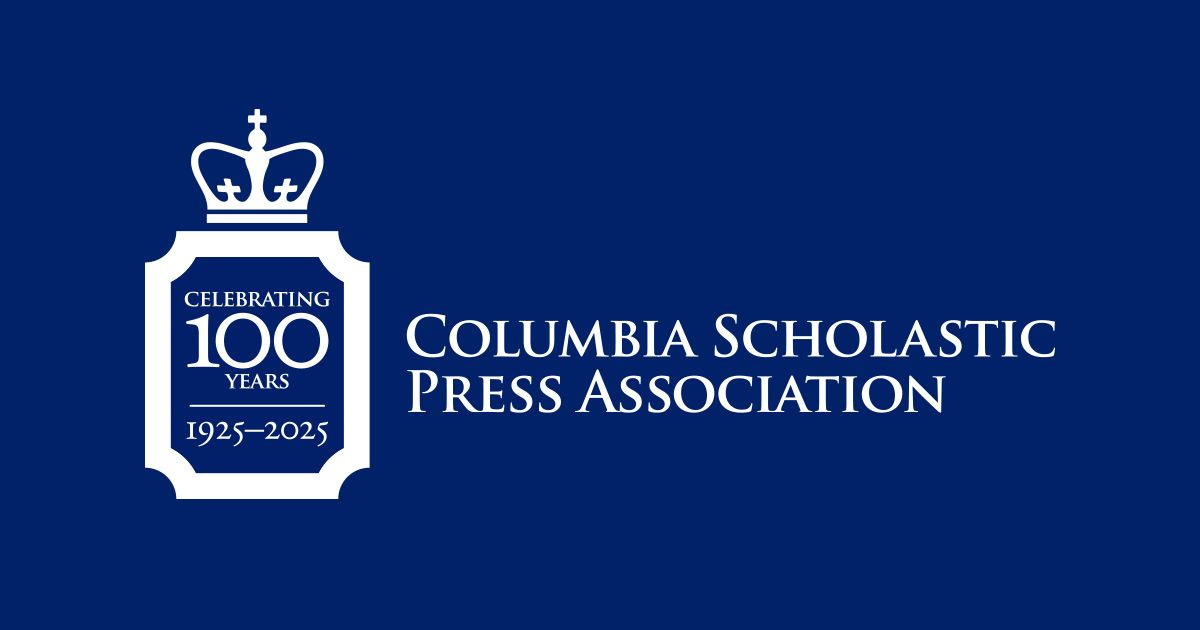'Journalism is needed most' amid anti-press rhetoric, professors say
As press freedoms face challenges, educators remind student journalists to stand firm and continue their work

As President Donald Trump’s anti-media rhetoric turns into action, educators are reminding student journalists that this is when “journalism is needed most.”
Their warning came as the administration barred the Associated Press from accessing the president over an AP Style dispute, evicted reporters from Pentagon workspaces, investigated Voice of America journalists and probed NPR and PBS over their sponsoring messages.
Multiple student newspapers have run editorials, voicing their concerns about Trump’s presidency being a dark time for journalism.
And amid the administration’s scrutiny of pro-Palestinian campus protests, even one of the nation’s top journalism schools is urging caution.
Columbia University’s Graduate School of Journalism warned its non-citizen student journalists to “avoid publishing work on Gaza, Ukraine and protests” related to their classmate’s arrest, The New York Times reported, citing concerns it could draw backlash from the Trump administration.
While coursework on reporting, press freedom and the First Amendment remains unchanged, some professors told The Nutgraf they fear the rhetoric could discourage young journalists from entering the field.
Scott Brinton, a journalism professor at Hofstra University, worries high school students who love English, journalism and writing might be dissuaded from the profession, thinking, “What’s the point?” That, he said, is his biggest fear.
“Of course, the point is that’s the moment when you’re digging in and saying this is the time where I have to fight harder as a journalist, as an investigator, as a writer,” Brinston said.
In his advanced reporting class, Brinton divided it into two parts: Covering government meetings and investigative reporting. The focus remains on challenging authority by asking tough questions.
Nicole Kraft, a professor at The Ohio State University, echoed that concern, saying there’s a “real feeling” among students that “it’s dangerous” to be in the media right now.
Last year, Kraft, who also works for the AP, never had to tell her students that the president banned the media from doing what it was charged to do. Now she does, and she has to emphasize it even more.
Kraft said journalists have long taken press freedom for granted.
“I don’t think any of us imagine that we’d be here today,” she said. “I worked in Congress as a press secretary for a Republican Congressman (Jon D. Fox) and it never dawned on me, at that time, that there would be a compromising of democratic ideals.”
At Columbia, a student said the school frequently cautions its students about the risks in the job.
Journalism school Dean Jelani Cobb wrote he would do everything in his power to defend his student journalists and their press rights, but “none of us had the capacity to stop DHS (Department of Homeland Security) from jeopardizing their safety,” referring to international student journalists.
“It was important to speak directly to the threats journalists were likely to confront in reporting on the situation on campus not to dissuade students but to give them an honest rendering of the risks it entailed,” Cobb wrote after holding an off-the-record meeting with students last week.
Patrick Howe of California Polytechnic State University said anti-press rhetoric isn’t new — he covered politics and government locally and nationally for 15 years — but what’s different now is the administration’s actions in recent months.
But “I do have faith in the system,” Howe said. “I believe that American democracy works and will work in this case. There are checks and balances, despite attempts to make it seem like they’re not.”
Although current events and news are discussed in his class, open conversations about opinions aren’t frequent.
He said students don’t initiate these kinds of conversations. He said the story about AP reporters only came up when they discussed AP Style.
One troubling sign, he noted, was when a lecturer in his program — an experienced reporter — asked him whether they would still be allowed to teach certain course content.
While that concern was alarming, Howe emphasized that executive orders don’t simply override academic freedom and First Amendment rights.
“But it shows how this stuff is probably filtering down and possibly even changing how some people approach the job,” he said.
As for how young people view journalism, Howe said his program saw a “Trump bump” in interest during and after the president’s first term, with more students drawn to investigative and accountability journalism.
Indeed, the University of North Carolina’s journalism school saw a 70% enrollment increase over the past decade, according to Nieman Lab. Emerson College, Syracuse University, Arizona State University, the University of Maryland and the University of Utah also reported increases.
“I don’t think it’s likely to decrease people’s enthusiasm towards the role that journalism plays in society,” Howe said. “I think it’s more to ultimately enhance it.”
Student journalists at forefront
With many of the administration’s actions directly targeting higher education, student journalists nationwide are on the ground documenting changes.
Kraft sees the toll it’s taking. She sees them working nonstop, covering one crisis after another. But she reminds them: They can’t stop now. The work is too important.
“Our student journalists are exhausted,” she said, calling on institutions to support them academically and administratively.
When asked whether journalism schools are doing enough to prepare students for the professional world, she said, "We’re doing the best we can."
“It’s not journalism that has to be, per se, the forefront of this, but it’s all of us,” she said. “Educating people in general about what democracy is will be what it takes to sustain it.”
And that’s the job student journalists can do as well.
Brinton, also the executive editor of the Long Island Advocate, said it’s important to get students out in the field to see that anti-press rhetoric isn’t as contentious outside Washington.
His message for student journalists is the same as others: Journalism is a check against government overreach, and reporters must go out every day and report truthfully.
For students who feel discouraged, Brinton said he always plays “All the President’s Men” in his class to show that tough times have come before — and that these are the times when “journalism is needed most.”
“Every day, I feel optimistic,” Brinton said. “I’m happy I’m at a school where people still want to be journalists. That alone gives me hope for the future.”
Correction: Scott Brinton’s last name was spelled incorrectly in the original version. It has been fixed.
💬 I want to hear from you! Do professors approach talking about press freedom differently under the current administration? Email me at nutgrafnews@gmail.com.
🎙️ Extra! Extra!
For those who are attending CSPA 101st Annual Spring Convention in New York this week, you can come to my session Thursday at 2:30 p.m. It will be my first time speaking at a convention, so your support is appreciated!
Story Spotlight:
🏀 The Daily Texan journalists drove 16 hours to cover their school’s women's basketball team, earning praise from the head coach who offered to be a reference on their future resumes.
📜 The Journalism Ethics Commission Bill was introduced in Hawaii’s Senate. It took a student journalist back to high school and her first experience with what felt like censorship.
📰 The SUNN Post, America’s first non-partisan national student newspaper, launched. “Week after week, Gen Z high school and college students are churning out landmark reporting and opinion writing in their own student publications – a cache of content that is widely overlooked,” the editorial board wrote.
🧑⚖️ The North Dakota Supreme Court ruled a Dickinson State University student with cerebral palsy is too disabled to pursue journalism as a career, cutting off his state-funded personal aide assistance and other employment-related support.
Featured Opportunities:
Student Press Law Center is hosting a webinar on how to report on sexual abuse in schools March 18.
Press Club of Long Island is hosting a webinar on covering the second Trump administration March 20.
Punchbowl News is seeking summer and fall editorial interns. Apply by March 28.
National Press Club in Washington, D.C., is hosting a career fair March 28. It’s $15 for students.
Piedmont Media in Virginia is looking for a summer reporting intern. Apply before April 1.
The Chicago Headline Club is accepting applications for a $5,000 award for an outstanding undergraduate journalism student in Illinois until April 4.
NBC Boston is looking for a digital news intern.
KUTV in Salt Lake City is looking for a news intern for the summer.
Colorado Public Radio is looking for a digital news fellow for September 2025 to August 2026.








